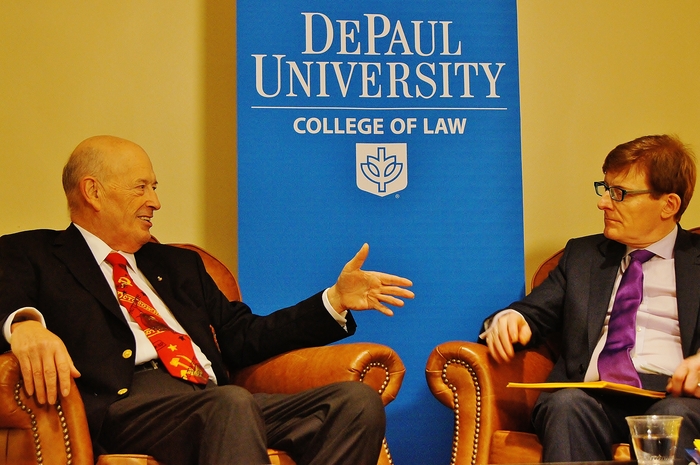 A marathon three-hour interview with retired KLM executive Paul Mifsud is the eighth installment of the International Aviation Law Institute’s “Conversations with Aviation Leaders” oral history project. Conducted by Professor Brian F. Havel, the institute's director, the wide-ranging interview explores in depth the environment that led to today's international airline alliances and the early history of U.S. "Open Skies" agreements.
A marathon three-hour interview with retired KLM executive Paul Mifsud is the eighth installment of the International Aviation Law Institute’s “Conversations with Aviation Leaders” oral history project. Conducted by Professor Brian F. Havel, the institute's director, the wide-ranging interview explores in depth the environment that led to today's international airline alliances and the early history of U.S. "Open Skies" agreements.
Paul Mifsud is best known for his groundbreaking work in devising and concluding the first Open Skies aviation agreement, which was negotiated between the United States and The Netherlands in 1992. For this work, the Queen of the Netherlands named him an Officer of The Netherlands Order of Oranj-Nassau.
Mr. Mifsud served as a trial attorney with the Bureau of Enforcement for the U.S. Securities and Exchange Commission before joining the airline industry with British Airways in 1973. He was with KLM Royal Dutch Airlines for 35 years, first as General Counsel, USA and later as Vice President, Government & Legal Affairs, USA. He has published numerous articles and speeches on issues of international trade, public policy, aviation, and international airline alliances, was named 2008 Transportation Lawyer of the Year by the Federal Bar Association, and received the 2015 L. Welch Pogue Lifetime Achievement in Aviation Award from Aviation Week & Space Technology magazine.
The interview will soon be posted for viewing alongside the previous seven interviews on the institute's website. The “Conversations” project continues to develop a record of the legal and policy history of the airline industry during the age of global deregulation, as told through the voices and memories of its participants. The project is a valuable resource for the large community of students, scholars, and policymakers interested in understanding the airline industry’s role in the broader deregulatory movement that continues to transform economic policy today.